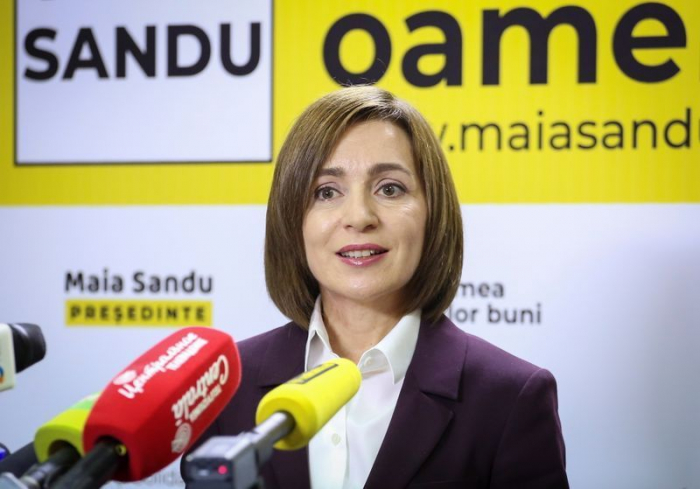Sandu, a former World Bank economist who favours closer ties with the European Union, defeated the pro-Russian incumbent Igor Dodon in the second round of Moldova’s presidential election on Nov 15.
Russian President Vladimir Putin was quick to congratulate Sandu, but Dodon’s defeat marked a setback for the Kremlin in Moldova, a small ex-Soviet republic sandwiched between Ukraine and EU member state Romania.
Sandu struck a conciliatory tone after her victory but on Monday called for Russian troops in Transdniestria to be removed in favour of civilian monitors under the Organization for Security and Co-operation in Europe (OSCE).
In response, Kremlin spokesman Dmitry Peskov said Russia expected the authorities in Chisinau to remain constructive.
“Russia performs a very important function ... And of course, a change in some status quo, which is based on the spirit and letter of international law, could lead to serious destabilisation,” Peskov told reporters in Moscow.
SEPARATISTS
The Russian-speakers of Transdniestria nominally seceded from Moldova in 1990, one year before the dissolution of the Soviet Union, fearing the country might shortly merge with Romania, whose language and culture it broadly shares.
The separatist region fought a brief war with Moldova in 1992 and declared itself an independent state, though it remains unrecognised by any country, including Russia.
Some pro-Kremlin hawks still fear that Romania may one day try to absorb Moldova, and that Sandu’s win will inevitably see Russian influence weaken.
Sandu told a press conference she wanted dialogue, adding: “We are an independent country that does not want foreign troops to stay on its territory.”
The continued Russian troop presence hobbles Moldova’s chances of joining the European Union.
Chisinau signed a political and trade deal with the EU in 2014, angering Moscow, though Brussels has also become increasingly critical of Moldova’s track record on reforms and tackling corruption.















































